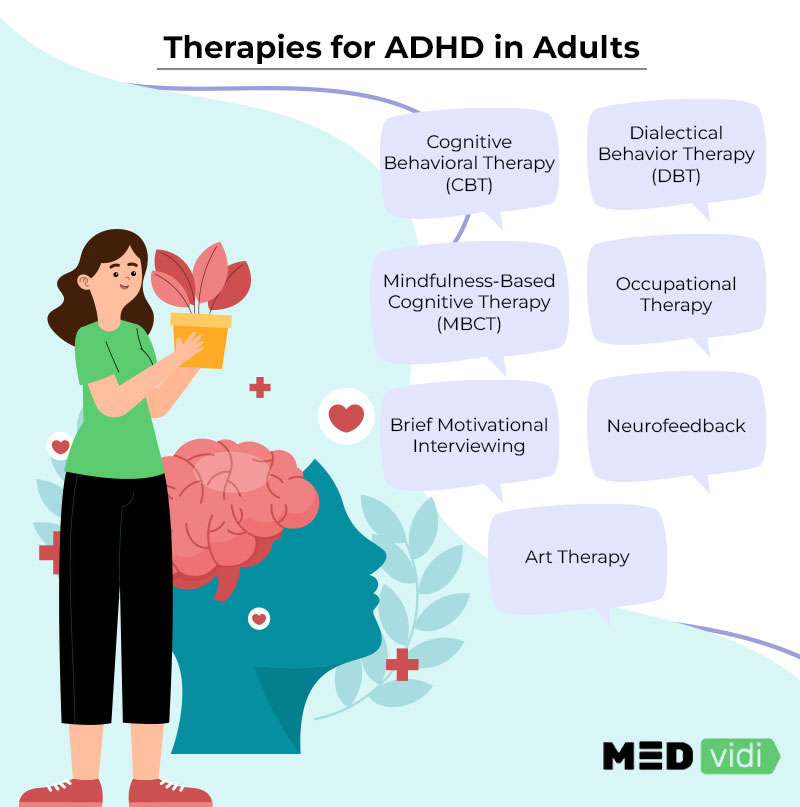Mental Health Services Focused for Improved Care Needs
Mental Health Services Focused for Improved Care Needs
Blog Article
Checking Out Effective ADHD Therapy Alternatives for All Ages
The intricacies of Interest Deficiency Attention Deficit Disorder Problem (ADHD) existing one-of-a-kind challenges throughout various age groups, requiring a thorough expedition of reliable therapy choices. A mix of behavioral therapies, pharmacological interventions, and lifestyle modifications has revealed pledge in resolving the varied demands of people with ADHD.
Comprehending ADHD and Its Influence
Attention-Deficit/Hyperactivity Condition (ADHD) is a neurodevelopmental problem identified by relentless patterns of negligence, hyperactivity, and impulsivity that can considerably affect numerous elements of an individual's life. It generally shows up in youth, although signs can persist right into the adult years. The core signs of ADHD can disrupt educational efficiency, prevent social interactions, and make complex work-related endeavors.
People with ADHD commonly have problem with maintaining emphasis on tasks, arranging activities, and adhering to with on guidelines, which can lead to academic underachievement (Depression Treatment). In social contexts, impulsivity may lead to problems in forming and maintaining connections, as individuals might interrupt conversations or make rash decisions without taking into consideration repercussions
The variability in symptom discussion indicates that ADHD can affect people differently, necessitating a customized approach to management. Comprehensive recognition of ADHD's nature and ramifications lays the foundation for discovering ideal therapy choices tailored to each individual's demands.
Behavioral Therapies for ADHD
Countless behavioral treatments have actually been established to successfully address the obstacles related to ADHD, concentrating on customizing particular actions and cultivating necessary skills. Among one of the most acknowledged methods are cognitive-behavioral therapy (CBT), moms and dad training, and social skills training.
CBT helps people determine and change unfavorable thought patterns and habits, advertising an extra favorable overview and boosted self-regulation. This therapy usually includes functional techniques for taking care of impulsivity and improving company. Parent training programs equip caretakers by furnishing them with techniques to strengthen favorable habits and established constant limits, which can be especially valuable for kids with ADHD.
Social skills training is one more essential component, mentor people with ADHD exactly how to engage successfully with peers - Depression Treatment. This strategy frequently entails role-playing and feedback to boost interaction, teamwork, and dispute resolution skills
Integrating these behavioral therapies right into a comprehensive treatment plan can substantially improve functioning and top quality of life for individuals with ADHD. Ultimately, the performance of these therapies depends on tailored methods that take into consideration the distinct requirements of each individual, consequently cultivating resilience and adaptability in everyday life.
Medicine Options Available
For several people with ADHD, drug can play a significant function in handling signs and boosting total performance. Both main classifications of drugs suggested for ADHD are energizers and non-stimulants.
Stimulants, such as methylphenidate and amphetamine-based medications, are the most commonly utilized therapies. These drugs work by boosting the levels of neurotransmitters, especially dopamine and norepinephrine, in the brain, which aids boost focus and lower impulsivity and attention deficit disorder. They frequently yield rapid results, making them a preferred option for many patients.
:max_bytes(150000):strip_icc()/adhd-treatment-4157278_FINAL-848b0cfc4d0b42a0b66c3d2ca894e9dd.png)
It is essential for medical care companies to carry out a comprehensive analysis to determine the most suitable medicine based on private needs, medical history, and prospective side visit site impacts. Routine follow-up and tracking are also essential to ensure the efficiency of the selected treatment and to make any necessary adjustments.
Lifestyle Changes to Take Into Consideration
Managing ADHD effectively extends past drug, as way of life modifications can substantially improve general wellness and sign control. Incorporating structured regimens is critical; regular routines assist individuals with ADHD manage their time effectively and reduce sensations of bewilder.
Regular exercise is another vital element. Workout not just helps to improve focus however also enhances state of mind and minimizes tension levels. Tasks such as yoga or group sports can be particularly useful, promoting both fitness and social communication.
Nutrition likewise plays a critical role. Depression Treatment. A well balanced diet regimen rich in omega-3 fats, whole grains, and lean proteins can add to improved emphasis and cognitive function. Restricting sugar and refined foods is recommended, as these can exacerbate attention deficit disorder and impulsivity
Rest hygiene is necessary for managing ADHD signs. Establishing a routine rest schedule and producing a relaxed environment can improve rest quality, causing better attention and psychological regulation.
Alternate and All Natural Approaches
Alternative and Bonuses holistic techniques to ADHD therapy offer a diverse series of alternatives that complement conventional approaches. These strategies usually concentrate on lifestyle modifications, dietary interventions, and healing techniques that aim to enhance general well-being while addressing ADHD signs.

Mindfulness and behavior treatments are also getting grip as all natural interventions. Practices such as yoga, meditation, and cognitive-behavioral therapy can cultivate self-regulation and boost focus. These approaches sustain emotional resilience, which is especially valuable for individuals with ADHD.
Herbal supplements, such as ginkgo biloba and ginseng, are often discovered; however, it is important to seek advice from medical care professionals before incorporating these into treatment strategies. While alternative and alternative strategies can give beneficial assistance, they should ideally be used in conjunction with evidence-based therapies to accomplish ideal results for handling ADHD across any ages.
Final Thought
In summary, efficient ADHD treatment requires an extensive strategy that includes behavioral therapies, drug, way of life alterations, and alternative approaches. This multifaceted method underscores the importance of personalized care in addressing the varied demands of individuals with ADHD across all age teams.
Report this page